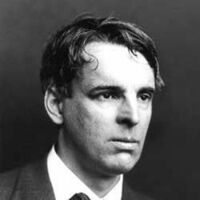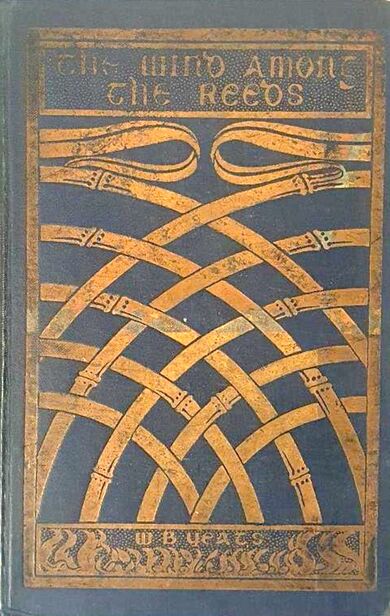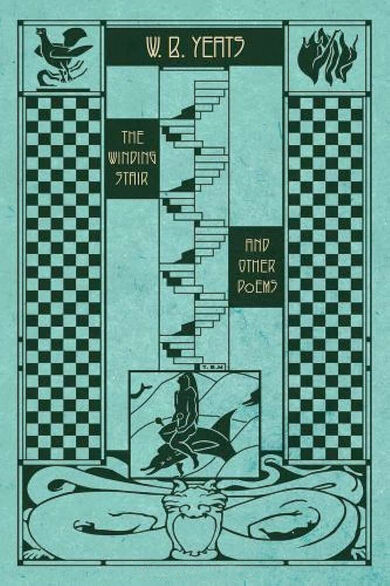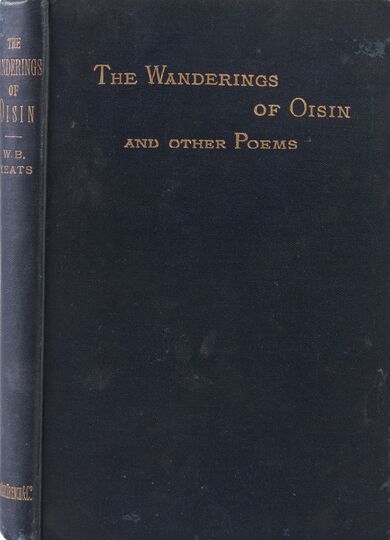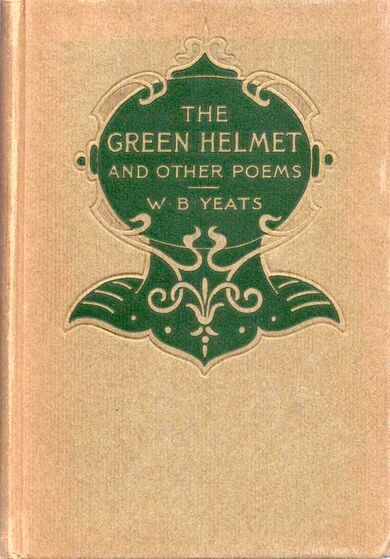The Lake Isle of Innisfree
And a small cabin build there, of clay and wattles made:
Nine bean-rows will I have there, a hive for the honey-bee;
And live alone in the bee-loud glade. And I shall have some peace there, for peace comes dropping
slow,
Dropping from the veils of the morning to where the cricket
sings;
There midnight's all a glimmer, and noon a purple glow,
And evening full of the linnet's wings. I will arise and go now, for always night and day
I hear lake water lapping with low sounds by the shore;
While I stand on the roadway, or on the pavements grey,
I hear it in the deep heart's core.
The speaker begins by declaring that he will rise up and go to Innisfree, a small island in the middle of Lough (Lake) Gill, located in the Irish countryside. There, the speaker will construct a cabin of mud and poles interwined with twigs, reeds, and branches. In a life of quiet solitude, the speaker will keep busy with his garden of beans and a beehive. In the second stanza, the speaker reiterates that he will faind calm in the easy pace of dripping dew and singing crickets in the morning light, and this calm will continue throughout the shimmering of midnight, the colored light of the afternoon, and the beating of finches' wings in the evening. In the final stanza, the speaker explains that he will always hear the intermingling sounds of the lake and noises on the shore as he goes about his daily business. Even though the speaker lives in an urban area, he will heat the sounds of tranquil nature on the byways and sidewalks because they will resonate in the deepest part of the speaker's being.
Typical of Yeats's early poetry, "The Lake of Innisfree" (1890) expresses a romantic desire to escape from urban life to an idealized pastoral retreat. Like his earlier work, the poem focuses on specific landmarks in the Irish countryside near where he grew up (Innisfree, Lough Gill) and emphasizes the experiences and sensations of being in rural Ireland. The isle has a magical, otherworldly quality. The glade is filled with sounds throughout the day, and the sky seems to glow from morning to glimmering midnight.
The poem extols the idyllic tranquility available to those who live a rural life, and the poem concludes by contrasting the tranquility with the bustle of modern city living. The speaker longs to escape the city for the comfort of the Irish countryside. At Innisfree, the speaker can focus on life-sustaining labor on the land (growing beans and raising bees). Throughout the poem, the speaker expresses his desire to rise up and go, but from where he intends to depart is unclear until the end. This outdoor work will give him the peace he has been longing for. He hears the sound of lake water echoing in his urban environment. Thus, he hears the sounds of the lake as he stands on the sidewalk or along the road—a sound that vibrates "in the deep heart's core" (12). Yeats uses a gentle abab rhyme scheme and a hexameter meter to echo the peaceful sounds of the lake. In this way, readers, like the speaker, can feel calmed by nature as they read the poem, regardless of where they might be standing as they read.
"The Lake Isle of Innisfree" reflects Yeats' method of incorporating fantastical, pastoral imagery to praise rural life, to evoke a unique spirituality, and to encourage the development of a distinctly Irish identity. The spiritual undertones of the poem are emphasized in the final lines, in which the speaker talks about hearing the sounds of the lake in the soulful center of his being. The profound sense of scape, is a recurring theme in Yeats' poetry. Additionally, Yeats abstractly gestures to the idea that the Irish might escape the trappings of the political life of the city by discovering the culture, history, and lifestyle of the countryside. By discussing one person's desire to leave the city in search of connection and communion with the "true" Ireland, Yeats makes a larger statement about the necessity for all Irish people to reconnect with the culture, history, and lifestyle associated with the land.


